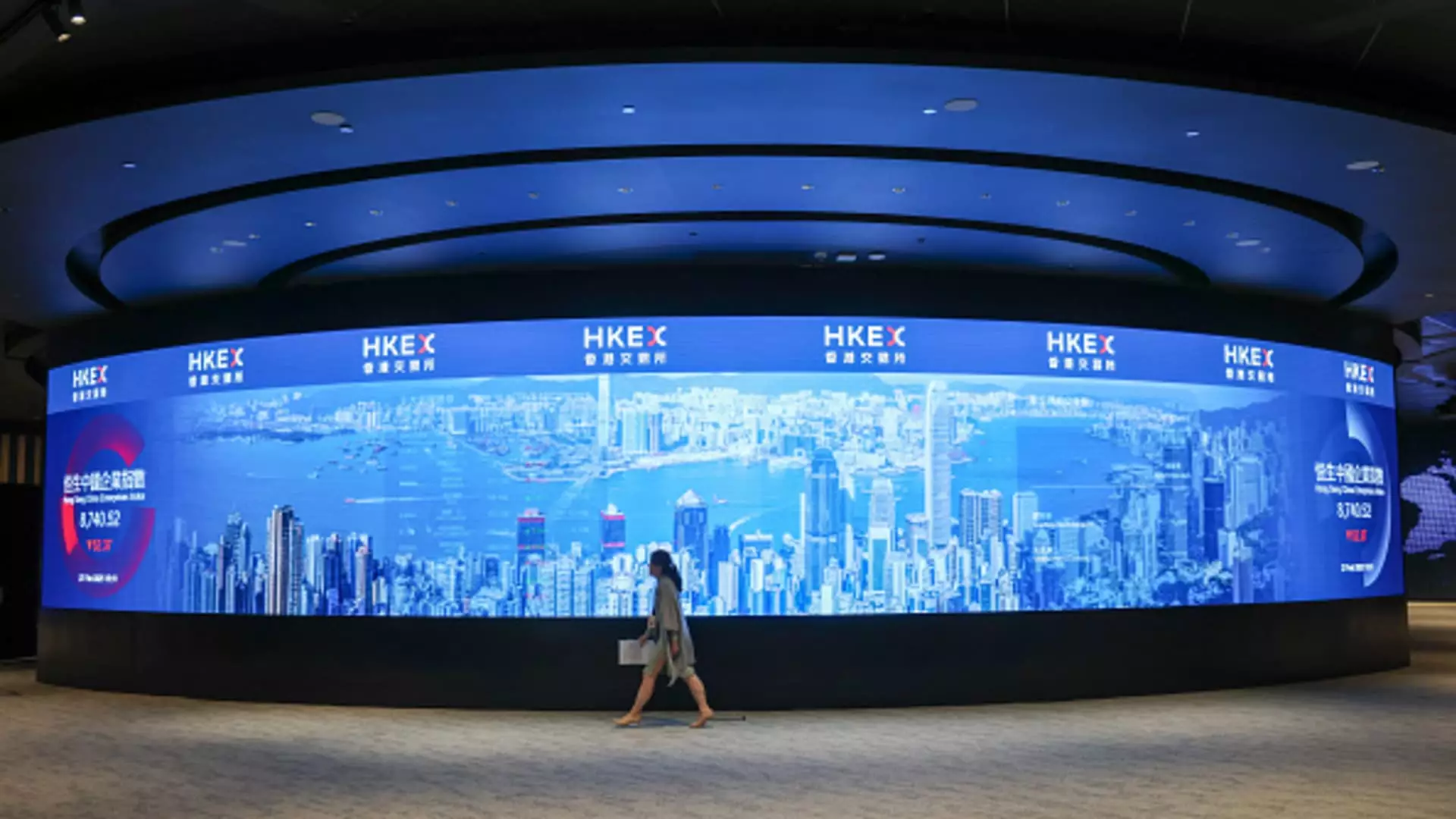In an unprecedented wave of optimism, mainland Chinese investors are flooding into the Hong Kong stock market, driving net purchases to a staggering 29.62 billion Hong Kong dollars ($3.81 billion)—a record high since the inception of the “connect” program in 2014. This surge is not just a number. It signifies a profound shift in investor sentiment towards the tech-heavy Hang Seng Index, which is now basking at levels not seen in three years. The interest in Hong Kong’s financial landscape is palpable and cannot be dismissed as a fleeting trend. It reflects a strategic pivot amid global economic uncertainties and U.S. market downswings.
The Impact of Policy on Market Dynamics
For a political landscape that has often been marked by strict regulations and economic skepticism, Beijing’s recent declaration of support for private sector innovation is a breath of fresh air. The government is not simply clinging to old paradigms; instead, it is tangibly working to bolster tech development and consumer spending. By increasing its fiscal deficit to an unusual 4% of GDP, the Chinese government is signaling its commitment to stimulate growth in a climate that has been fraught with challenges. From raising consumer subsidies to fostering technological breakthroughs, every action seems calculated for a broader economic narrative that champions liberalized growth rather than state-controlled stagnation.
The Role of Connect Programs
The “connect” programs that allow investors from mainland China to trade specific stocks in Hong Kong have been game changers for how investments are orchestrated across borders. These schemes have democratized access to previously unreachable stocks, enabling mainland investors to tap into the vast potential of Hong Kong’s market, particularly its tech giants such as Alibaba and Tencent. The importance of this cannot be overstated; it provides a means for diversification and capital growth outside of their stricter domestic market. Critics of the ‘connect’ programs often claim they merely serve the elites, yet the reality is that they present ample opportunities for lower-tier investors who have historically faced barriers in entering the tech-heavy shares traded in Hong Kong.
Institutional Trends and Global Perspectives
Citi’s macro strategy team has emphasized a prudent pivot towards Chinese equities, particularly the Hang Seng China Enterprises Index, even as it stabilizes its view on U.S. stocks. Their reasoning leans heavily on the assertion that the foundational elements for growth in Chinese tech remain intact despite tariff risks. Clearly, the international investment community is beginning to acknowledge a coherent narrative in favor of Chinese tech firms, particularly in light of their ability to innovate and adapt amid external pressures. Figures like Manishi Raychaudhuri from Emmer Capital Partners argue that the cheap yet undervalued stocks in Hong Kong are set to attract renewed interest, especially as global stock markets start to recover from ongoing volatilities.
The Path Forward for Asia and Beyond
As we look beyond the immediate financial gains, there’s an undeniable cultural shift toward tech investment within greater Asia. The narrative that tech is a luxury or niche market is swiftly evolving into one where it is viewed as essential. Consumers increasingly recognize that tech influences all sectors—from athleisure to tourism—and the ripple effects of investing in these sectors will be significant. The trends we are observing are not just localized in Hong Kong; rather, they resonate with a larger movement toward embracing technological advancement in everyday life.
This cultural metamorphosis should encourage investors not simply to focus on stock prices but to regard these companies as pivotal in shaping economic landscapes. The key takeaway here is that Hong Kong’s stock market presents a viable and compelling alternative to more stagnated global counterparts. So, while global indexes may experience their tumbles, the ascent of Hong Kong as a hub for technological investment offers an invigorating counter-narrative pertinent to modern investment strategies.

